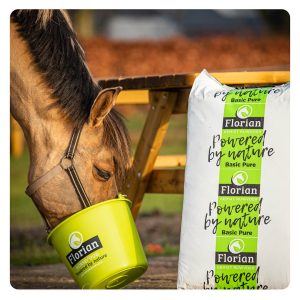
More than half of horses have stomach ulcers
Shocking but true.
Recent studies show that more than half of horses have stomach ulcers
.
Known symptoms of stomach ulcers are:
The stomach of a horse works differently than the stomach of a human being
The stomach is partially filled with stomach acid.
Stomach acid is necessary to break food into small pieces.
It also provides a good environment for digestive enzymes.
In addition, stomach acid keeps microorganisms that may enter the stomach with the food from surviving.
Thus,
stomach acid prevents possible infections.
Stomach acid production in horses occurs continuously unlike in humans where it is only triggered during eating.
Saliva and food act as a buffer against stomach acid.
Unlike humans who constantly produce saliva, a horse only produces saliva when chewing.
Cause of peptic ulcers
Gastric ulcers are erosions at the level of the mucosa of the stomach.
When forage is low, there is too little saliva production, resulting in insufficient buffering of stomach acid.
High sugar and starch levels also increase acid production. The use of anti-inflammatory drugs, for example, reduces the protective capacity of the gastric mucosa.
Stress is also a very important factor that lowers the protective capacity.
The risk of stomach ulcers is increased in this way.
Prevention
Avoiding stress plays an important role in ulcer prevention.
In addition, we cannot stress enough the importance of roughage. Roughage keeps saliva production going.
Supplementing the ration with various fibers and extending a horse’s chewing time while eating provides a natural buffer and protects the stomach lining.
Florian has developed products especially for horses with a sensitive stomach or disturbed digestion.
Digest comfort consists of a uniquely selected seaweed mix and protects the stomach lining.
Our roughage mixes extend chewing time and neutralize acidity in the stomach.
Author: Hilde Vrancken
Veterinary specialist
Discount Applied Successfully!
Your savings have been added to the cart.